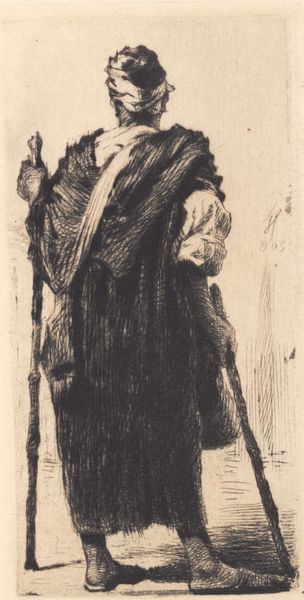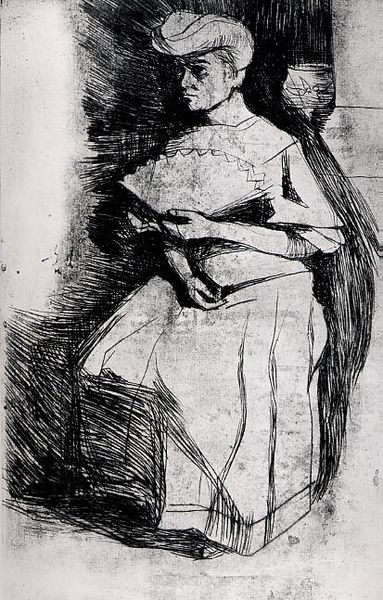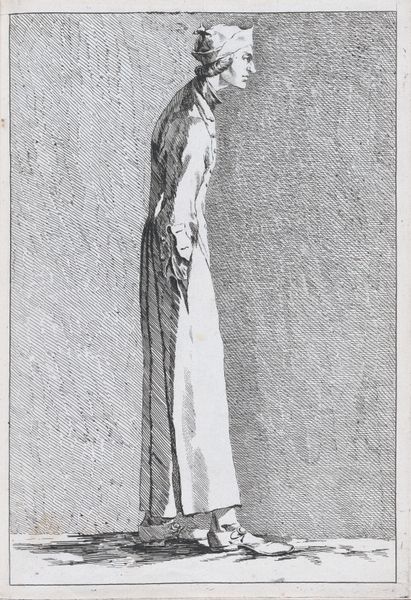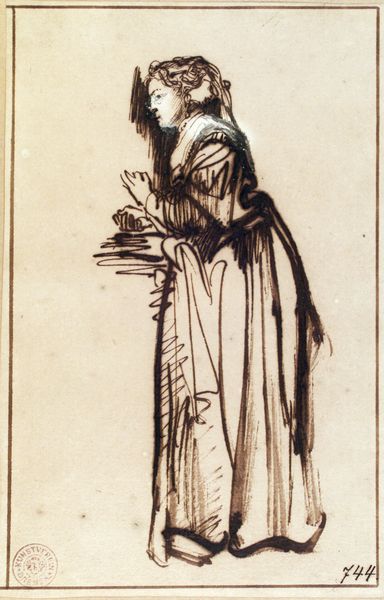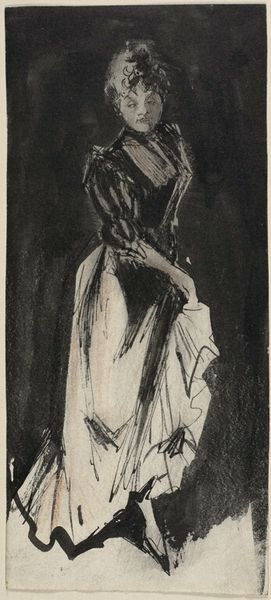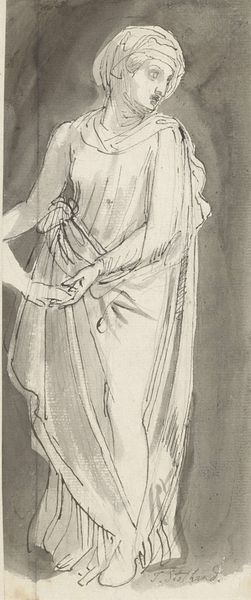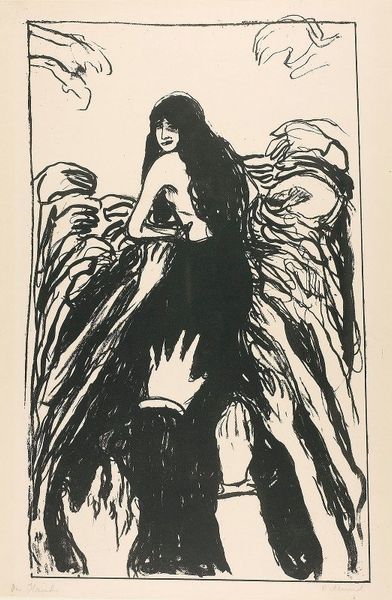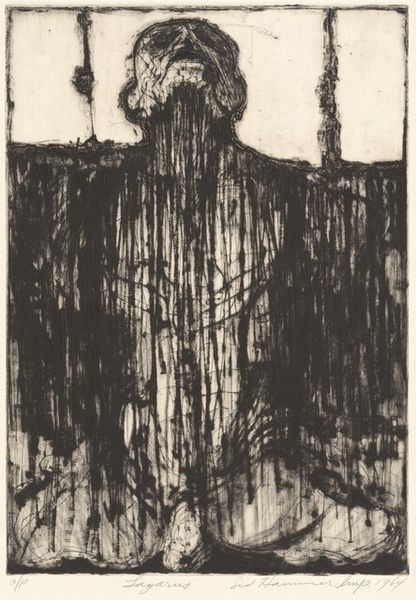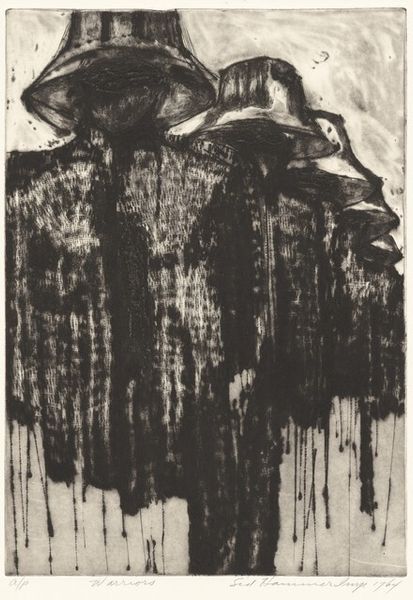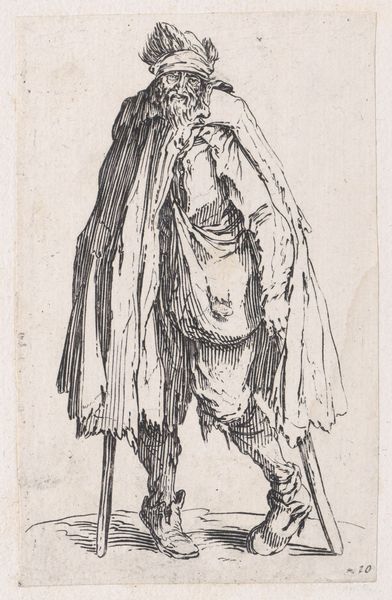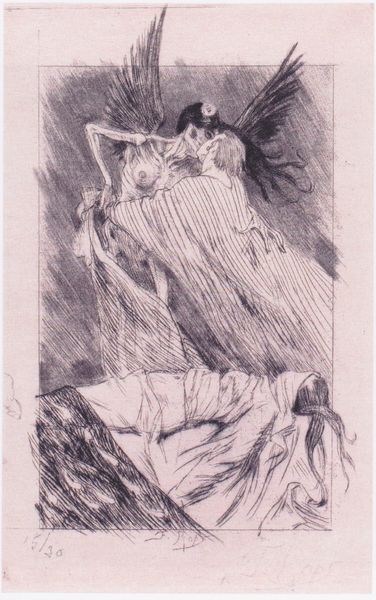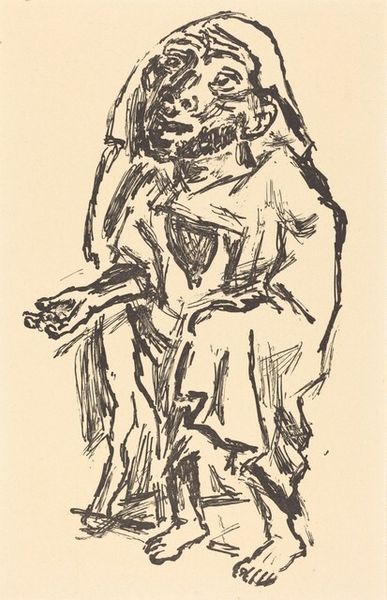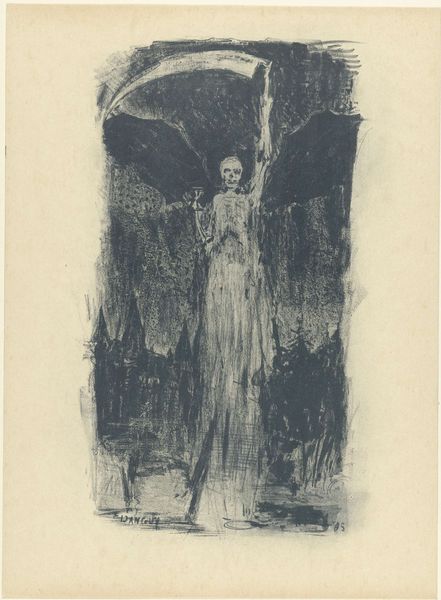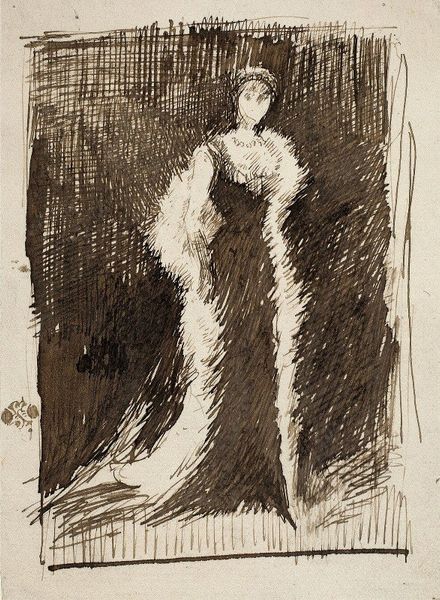
drawing, print, ink
#
portrait
#
drawing
#
ink drawing
# print
#
figuration
#
ink
#
monochrome
Dimensions: image: 78.7 × 55.9 cm (31 × 22 in.) sheet: 86.36 × 60.8 cm (34 × 23 15/16 in.)
Copyright: National Gallery of Art: CC0 1.0
Editor: This is Leonard Baskin's 1971 ink drawing, "Patriarch/Oedipus at Colonus." It's a stark, almost spectral portrait. What stands out to me is the rawness of the lines, how aggressively the ink seems to have been applied. What do you see in this piece? Curator: I see a powerful indictment of authority, built upon the very act of making the work. The gestural quality, as you noticed, Editor, isn't accidental. Baskin deliberately chose a medium like ink, and a printmaking process that, even in its reproduction, highlights the artist's hand, his *labor*. It asks us to consider: who is creating the image of power and how? Editor: So, it's less about the figure itself and more about the act of creating that figure? Curator: Precisely. Consider the title itself – a reference to both patriarchal figures and the exiled Oedipus. Baskin draws parallels, implicating these power structures but doing so by reminding us of the labor *behind* them. Look at the paper – the support, the raw material consumed in this artistic process. Editor: So, the materials used contribute to the meaning? It feels like Baskin isn’t just depicting a patriarch, but also critiquing the *means* through which patriarchal images and ideas are produced and circulated. Curator: Exactly. How is this image distributed? What political structures enable both its creation and consumption? Are we implicated as viewers? These questions arise from the artwork’s own materiality and processes of reproduction. Editor: I never considered that the act of creating and displaying this could itself be a statement about power and labor. I’ll definitely look at art differently now. Curator: That's the beauty of focusing on materiality and the means of production: it unveils hidden layers of meaning. We understand not only *what* is being presented but *how* and *why* it exists in its particular form.
Comments
No comments
Be the first to comment and join the conversation on the ultimate creative platform.
